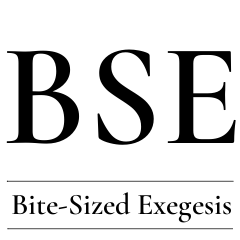To really know someone or something one must first love that someone or something. This applies both to human relationships and to Bible study.
Category Archives: Methodology
Reading Amos 2:4-5 in Context
The oracle against Judah in Amos 2:4-5 is typically regarded by scholars as a later insertion due to its use of Deuteronomic language and the apparent vagueness of its accusation. This article argues that dating a text late solely because of the presence of so-called “Deuteronomic” language is logically circular, and it proposes a reading of the first two chapters of Amos that makes the oracle against Judah an integral part of the passage’s rhetoric rather than an obligatory insertion.
The Authenticity of Amos 1:9-12
Many biblical scholars doubt the authenticity of the oracles against Tyre and Edom in Amos 1:9-12. But not only do many of the arguments against their authenticity have other, better explanations, some, particularly those that argue for a much later date of the Edom oracle based upon its “appropriateness”, commit a fundamental error in logic.
When Word-For-Word is Not so Word-For-Word
Even someone as awesome as William Tyndale can make a mistake. And even as revered a translation as the King James Version can unthinkingly perpetuate it.
Review: A Brief Guide to the Hebrew Bible
A Brief Guide to the Hebrew Bible introduces the reader to the literature of the Old Testament and the history of scholarship pertaining to it in an accessible and engaging way. While intended for undergraduate students, this book is useful for laypeople, pastors, non-specialist scholars, or graduate students in Old Testament who desire a quick overview of Old Testament literature and scholarship.
A Way Forward For Fundamentalist Biblical Scholarship
Merrill, Rooker, and Grisanti’s OT introduction “The World and the Word” unfortunately represents a step backward for fundamentalist Bible scholarship, when what it needs is honesty, courage, and creativity.
Book Review – Biblical Criticism: A Guide for the Perplexed, by Eryl W. Davies
Biblical Criticism: A Guide for the Perplexed, by Eryl W. Davies, is an introduction to four of the most prominent and representative post-modernist hermeneutical methods used in biblical studies.
Is Neo-Source-Criticism A Thing?
Is neo-source-criticism a thing? Is it actually possible that so many recent PhD candidates and recipients don’t realize that source-criticism is dead, buried, and mostly decomposed? Source-criticism as a method has proven a completely unsatisfactory way to do diachronic study since at least the 1970s because of what it assumes about the texts under consideration and about what may be discerned with certainty from certain kinds of features of those texts.


